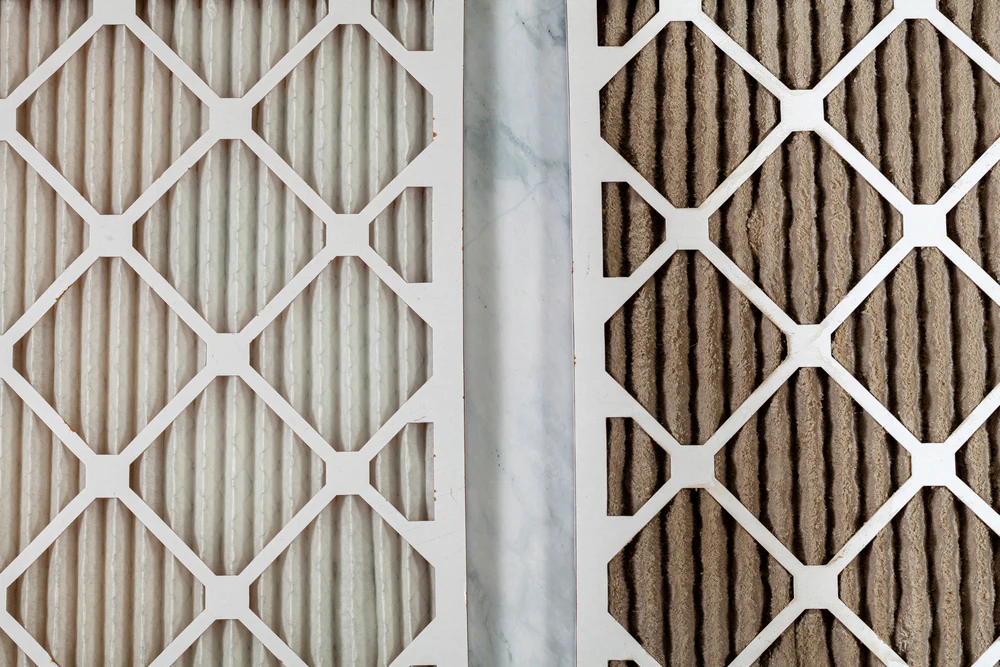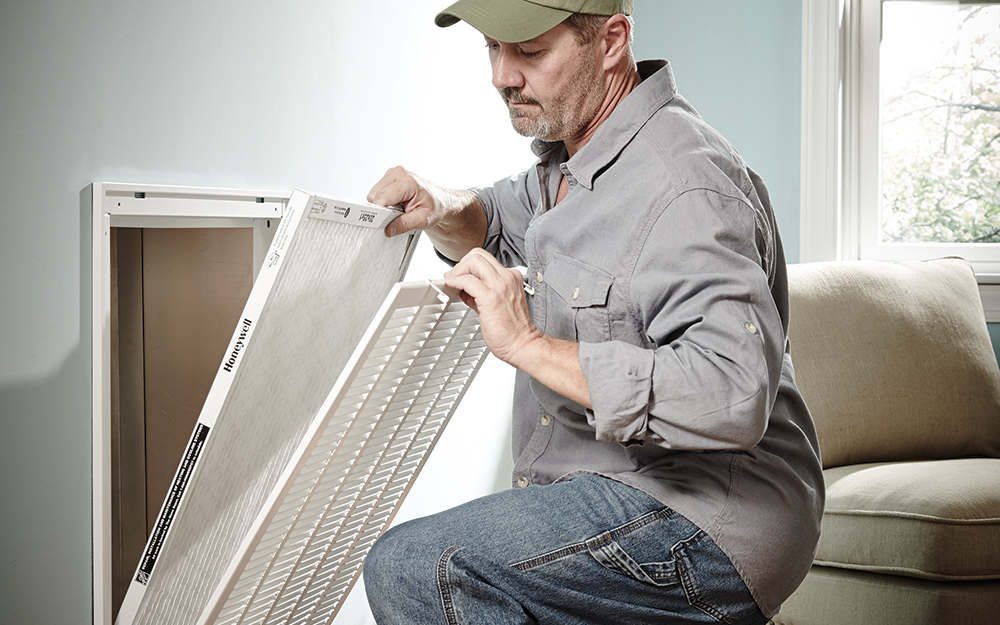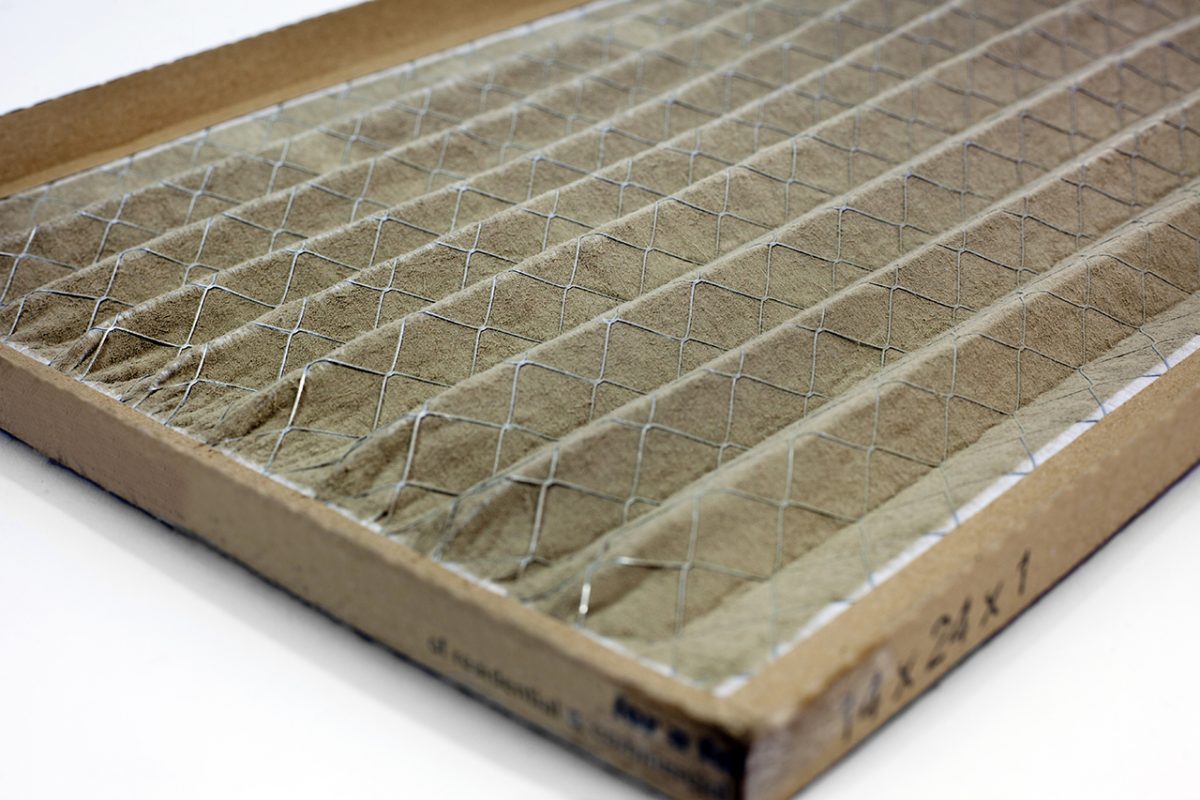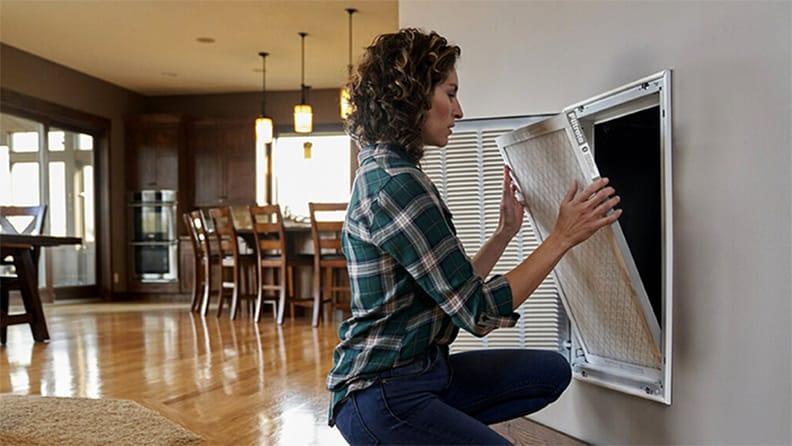
Why Changing Your Air Filter is Critical for Your HVAC System’s Health
Your air filter is your HVAC system’s first line of defense against dust, dirt, and debris. It traps contaminants before they enter your heating and cooling system and get recirculated throughout your home. Over time, air filters get clogged with these particles, restricting airflow and making your system work harder to maintain the desired temperature. This not only increases your energy bills but can also lead to costly repairs and even shorten the lifespan of your HVAC system.
What Happens When You Don’t Change Your Air Filter?
If you don’t change your air filter regularly, your HVAC system may face a range of issues, including:
- Reduced Airflow: A dirty air filter restricts airflow, forcing your HVAC system to work harder to push air through.
- Higher Energy Bills: The more energy your system uses, the higher your bills. A clogged filter can increase energy usage by up to 15%.
- HVAC System Breakdown: Dust and dirt can clog critical components like fan motors and compressors, leading to expensive repairs.
- Poor Indoor Air Quality: A dirty filter allows pollutants, allergens, and dust to circulate in your home, aggravating allergies and respiratory issues.
If your home is already suffering from poor air quality or mold, Citywide Mold Mitigation can help remove harmful mold spores and improve your home’s air quality.
How Often Should You Really Change Your Air Filter?

The truth is, how often you should change your air filter depends on several factors. While the general rule of thumb is every 90 days, some homes may require more frequent replacements. Here’s a more detailed breakdown:
1. Type of Air Filter Matters
The type of air filter you’re using plays a big role in how often it needs to be replaced:
- Fiberglass Filters (30 Days): These are the most basic and least expensive filters, but they need to be replaced every 30 days due to their low particle-trapping efficiency.
- Pleated Filters (60-90 Days): These filters are more efficient at trapping dust and allergens, and can typically last up to 90 days.
- HEPA Filters (45-60 Days): HEPA filters are the gold standard for air filtration, but because they trap such fine particles, they may need to be changed more frequently.
2. Do You Have Pets? Change Your Air Filter More Often
If you have pets, you’ll need to change your air filter more often. Pet hair and dander can clog your filter quickly, especially if you have multiple pets. In homes with one or two pets, plan to replace your filter every 60 days. For households with multiple pets or those with allergy sufferers, you should change the filter every 30-45 days.
3. Allergy or Respiratory Problems? Every 30 Days
If anyone in your household suffers from allergies, asthma, or other respiratory issues, change your filter every 30 days. Clean filters help trap allergens like pollen, dust mites, and mold spores, providing cleaner air and reducing allergy symptoms.
4. Climate and Location Affect Filter Life
The climate you live in also impacts how often you should change your air filter. Homes in dusty or dry areas, or places with high pollen counts, require more frequent filter changes. Urban areas with higher pollution levels will also require more frequent filter replacements. In these areas, aim to change your filter every 30-60 days to maintain air quality and system efficiency.
5. HVAC System Usage and Size of Your Home
The more often your HVAC system runs, the faster your air filter will clog. If you live in a large home with frequent HVAC use, change your filter every 60 days, or even more often if you notice decreased airflow. For vacation homes or homes that see minimal use, filters can last 9-12 months before needing replacement.
Signs Your Air Filter Needs to Be Replaced

Even if you’re not tracking the days, your HVAC system will give you signs when the air filter needs to be replaced. Watch for these common signs:
1. Dust Build-Up Around Vents
Seeing dust accumulating around your air vents? This could be a sign that your air filter is too clogged to capture dust effectively.
2. Increased Allergy Symptoms
Are your allergies acting up indoors? A dirty air filter could be circulating allergens like dust, pet dander, and pollen through your home. Replacing the filter can help reduce symptoms.
3. Higher Energy Bills
If you notice your energy bills have spiked, it could be due to your HVAC system working harder because of a clogged air filter. Changing the filter can improve energy efficiency and lower your bills.
4. Poor Airflow from Vents
If airflow from your vents feels weak, a clogged filter may be restricting air circulation. Replacing the filter can restore normal airflow and improve overall system performance.
5. The Filter Looks Dirty
The easiest way to tell if your air filter needs to be changed is by inspecting it. If it looks gray, brown, or covered in dust and debris, it’s time for a new one.
How to Change Your Air Filter: A Quick Guide

Changing your air filter is a simple process that can have a big impact on your home’s air quality and HVAC efficiency. Follow these steps to replace your filter:
| Step | Instructions |
|---|---|
| 1. Turn Off Your HVAC System | Before removing the old filter, turn off your HVAC system to prevent dust and debris from circulating during the replacement. |
| 2. Locate Your Filter | Most air filters are located near your HVAC unit in the return air duct. In some homes, filters may be located in the ceiling or walls. |
| 3. Remove the Old Filter | Slide out the old filter and dispose of it in a trash bag. Check the filter size printed on the frame to ensure you buy the correct replacement. |
| 4. Insert the New Filter | Insert the new filter with the airflow arrows pointing toward the HVAC system. Make sure it fits securely in the filter slot. |
| 5. Turn the System Back On | Once the new filter is in place, turn your HVAC system back on and enjoy improved airflow and cleaner air. |
How to Improve Indoor Air Quality Beyond Changing Air Filters
While regularly changing your air filter is essential, there are other ways to improve your indoor air quality:
- Use an Air Purifier: Air purifiers can help remove additional allergens and pollutants from the air, complementing the work of your HVAC filter.
- Clean Ducts Regularly: Having your air ducts cleaned every few years can help remove dust, allergens, and mold spores that may be circulating through your home.
- Control Humidity: Mold thrives in high-humidity environments. Using a dehumidifier can reduce indoor humidity levels and prevent mold growth.
For more information on improving indoor air quality or addressing mold and dust issues, check out this CDC guide on indoor air quality or contact Citywide Mold Mitigation for expert help with mold remediation and air quality solutions.
FAQ
| Question | Answer |
|---|---|
| How often should I change my air filter if I have pets? | If you have pets, it’s best to change your air filter every 60 days, or even more frequently if you have multiple pets or someone in your home has allergies. |
| What happens if I don’t change my air filter regularly? | Neglecting to change your air filter can lead to higher energy bills, reduced airflow, poor air quality, and eventually costly repairs to your HVAC system. |
| Can a dirty air filter cause my HVAC system to break down? | Yes, a clogged filter can cause your system to overheat and damage components like the fan motor or compressor, potentially leading to expensive repairs. |
| How do I know when it’s time to change my air filter? | Signs you need a new air filter include poor airflow, increased dust, higher energy bills, and visible dirt or discoloration on the filter. |
| Can changing my air filter improve my indoor air quality? | Yes, regularly changing your air filter helps remove dust, allergens, and pollutants from the air, improving the overall air quality in your home. |
If you need assistance with air quality issues or mold remediation, contact Citywide Mold Mitigation today for expert services and solutions to keep your home’s air clean and healthy.

